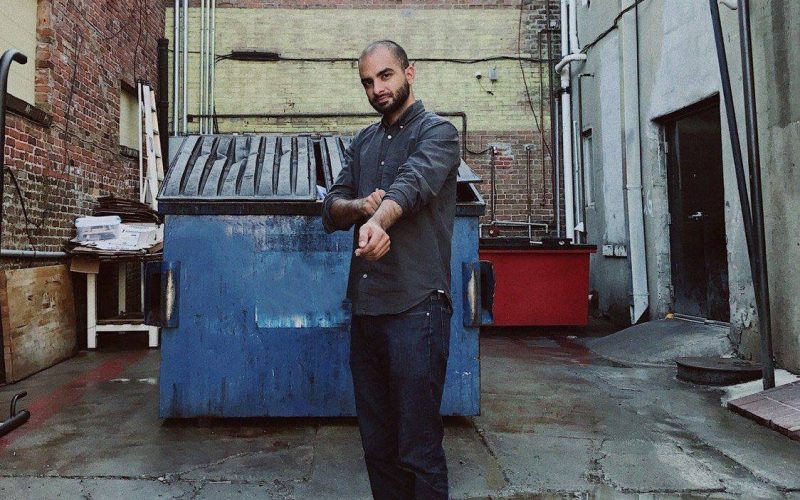“If you were to look at a Venn diagram of what would create a successful comedy album, none of these things would intertwine. You wouldn’t think an Indian dude living in Northwest Arkansas is going to have any kind of success in comedy.”
And yet, less than two weeks after Bentonville comedian Raj Suresh released his debut comedy album “Semi Famous,” the album landed on the Billboard Comedy Chart. The distinction is significant because the Billboard charts are populated by albums from all over the world; anyone who releases an album can land on the chart. However, the biggest names in the industry — like Jim Gaffigan, Jeff Foxworthy or Patton Oswalt — continually rank high week after week due to their sales. So when “an Indian dude” out of Northwest Arkansas with a shoestring budget surfaces on the chart, even momentarily, it is because he has a base of supportive followers buying his material nationally and even internationally.
“I attempted and failed at recording that album two times before I finally decided to release what I had recorded,” Suresh reveals. “I didn’t feel that the album was as funny as it could have been. So between attempts one and two, there were marginal improvements; but between attempts two and three, I played about 80 shows in that single year to try to get that content as sharp as possible. It’s a cool thing to be able to put up against your name that you actually made it in a global marketplace coming out of Arkansas.”
Suresh believes his album is seeing such positive reception because he doesn’t aggressively attack the right, despite being “the poster child” for a left-leaning comedian — “I’m a brown, bearded guy with democratic tendencies, I’m an immigrant…there are so many things that would indicate I cannot placate a republican base.” But making fun of the right without also making fun of himself didn’t feel like the right way to go, especially Suresh says, when he has friends on both sides.
“While I might not align with you, at the end of the day when we’re weighing each other’s intentions and understand that what I’m doing is joking around, it makes it a lot more palatable,” Suresh says of his equal-opportunity offensiveness. “I’m just grateful to be living in an area where I have the opportunity to have those multiple points of view in my daily sphere. It forms, I think, more well-rounded comedy.”
Being surrounded by the diversity of Northwest Arkansas also added spice to the comedic content, Suresh suggests. There are jokes about the quirks of living in a small town, but also about Suresh’s relation to other Arkansas residents and his experience as an Indian man living in the U.S. — which sometimes comes with comparisons to, and even being mistaken for, other famous Indian faces like Aziz Ansari and Raj from “The Big Bang Theory.”
Despite these encounters of mistaken identity, Suresh’s rising success — across international boundaries, skin color and other polarizing factors — as an Indian entertainer may be part of a grander shift in the entertainment industry. Suresh points to the noticeable change in not only the representation “brown entertainers” on the whole have access to, but also the masses’ increased acceptance of the material being produced — brown entertainers gaining success with their own stories, their own perspectives, without bending to stereotypes.
“There’s still a long way to go I’m sure in terms of race relations, but at least as far as the entertainment landscape goes, [people are] more open to seeing that kind of character on screen,” he says. “And it’s important for guys like me who look at that landscape and go, ‘We have an opening.’ The door might just be open a crack, but it’s open. And there’s a shot. Really more than anything, it’s hope.
“It’s also important because by and large, Indian kids are told growing up to move into certain occupations, and creative occupations are generally not on that list,” Suresh adds thoughtfully. “So for a long period of time, not only were we boxed out by the industry, we were boxed in by our culture — by the expectation of what success looked like.”
Returning to levity with a laugh, he concludes, “That’s a good quote, you should throw that in there.”



